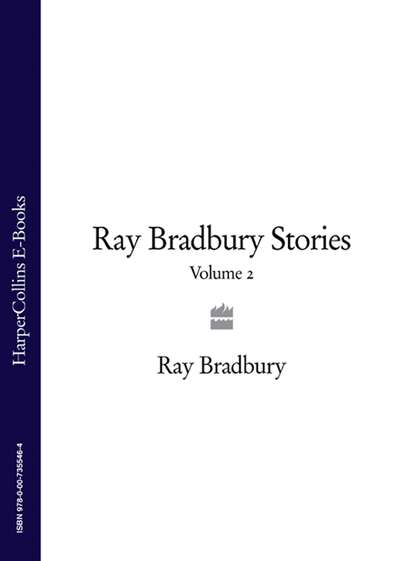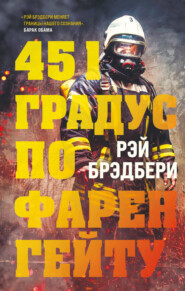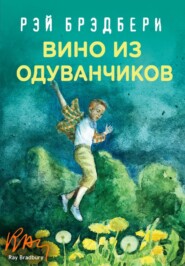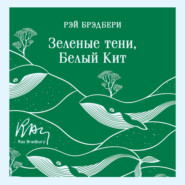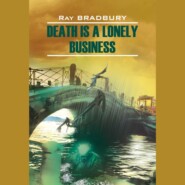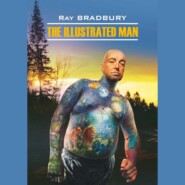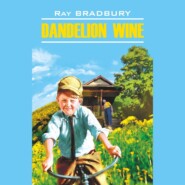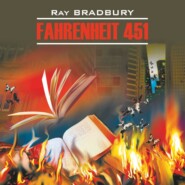По всем вопросам обращайтесь на: info@litportal.ru
(©) 2003-2024.
✖
Ray Bradbury Stories Volume 2
Настройки чтения
Размер шрифта
Высота строк
Поля
‘Closing up, ladies.’ The druggist switched off the lights in the cool white-tiled silence.
Outside, the streets were swept clean and empty of cars or trucks or people. Bright lights still burned in the small store windows where the warm wax dummies lifted pink wax hands fired with blue-white diamond rings, or flourished orange wax legs to reveal hosiery. The hot blue-glass eyes of the mannequins watched as the ladies drifted down the empty river bottom street, their images shimmering in the windows like blossoms seen under darkly moving waters.
‘Do you suppose if we screamed they’d do anything?’
‘Who?’
‘The dummies, the window people.’
‘Oh, Francine.’
‘Well …’
There were a thousand people in the windows, stiff and silent, and three people on the street, the echoes following like gunshots from store fronts across the way when they tapped their heels on the baked pavement.
A red neon sign flickered dimly, buzzed like a dying insect, as they passed.
Baked and white, the long avenues lay ahead. Blowing and tall in a wind that touched only their leafy summits, the trees stood on either side of the three small women. Seen from the courthouse peak, they appeared like three thistles far away.
‘First, we’ll walk you home, Francine.’
‘No, I’ll walk you home.’
‘Don’t be silly. You live way out at Electric Park. If you walked me home you’d have to come back across the ravine alone, yourself. And if so much as a leaf fell on you, you’d drop dead.’
Francine said, ‘I can stay the night at your house. You’re the pretty one!’
And so they walked, they drifted like three prim clothes forms over a moonlit sea of lawn and concrete, Lavinia watching the black trees flit by each side of her, listening to the voices of her friends murmuring, trying to laugh; and the night seemed to quicken, they seemed to run while walking slowly, everything seemed fast and the color of hot snow.
‘Let’s sing,’ said Lavinia.
They sang, ‘Shine On, Shine On, Harvest Moon …’
They sang sweetly and quietly, arm in arm, not looking back. They felt the hot sidewalk cooling underfoot, moving, moving.
‘Listen!’ said Lavinia.
They listened to the summer night. The summer-night crickets and the far-off tone of the courthouse clock making it eleven forty-five.
‘Listen!’
Lavinia listened. A porch swing creaked in the dark and there was Mr Terle, not saying anything to anybody, alone on his swing, having a last cigar. They saw the pink ash swinging gently to and fro.
Now the lights were going, going, gone. The little house lights and big house lights and yellow lights and green hurricane lights, the candles and oil lamps and porch lights, and everything felt locked up in brass and iron and steel, everything, thought Lavinia, is boxed and locked and wrapped and shaded. She imagined the people in their moonlit beds. And their breathing in the summer-night rooms, safe and together. And here we are, thought Lavinia, our footsteps on along the baked summer evening sidewalk. And above us the lonely street lights shining down, making a drunken shadow.
‘Here’s your house, Francine. Good night.’
‘Lavinia, Helen, stay here tonight. It’s late, almost midnight now. You can sleep in the parlor. I’ll make hot chocolate – it’ll be such fun!’ Francine was holding them both now, close to her.
‘No, thanks,’ said Lavinia.
And Francine began to cry.
‘Oh, not again, Francine,’ said Lavinia.
‘I don’t want you dead,’ sobbed Francine, the tears running straight down her cheeks. ‘You’re so fine and nice, I want you alive. Please, oh, please!’
‘Francine, I didn’t know how much this has done to you. I promise I’ll phone when I get home.’
‘Oh, will you?’
‘And tell you I’m safe, yes. And tomorrow we’ll have a picnic lunch at Electric Park. With ham sandwiches I’ll make myself, how’s that? You’ll see, I’ll live forever!’
‘You’ll phone, then?’
‘I promised, didn’t I?’
‘Good night, good night!’ Rushing upstairs, Francine whisked behind a door, which slammed to be snap-bolted tight on the instant.
‘Now,’ said Lavinia to Helen, ‘I’ll walk you home.’
The courthouse clock struck the hour. The sounds blew across a town that was empty, emptier than it had ever been. Over empty streets and empty lots and empty lawns the sound faded.
‘Nine, ten, eleven, twelve,’ counted Lavinia, with Helen on her arm.
‘Don’t you feel funny?’ asked Helen.
‘How do you mean?’
‘When you think of us being out here on the sidewalks, under the trees, and all those people safe behind locked doors, lying in their beds. We’re practically the only walking people out in the open in a thousand miles, I bet.’
The sound of the deep warm dark ravine came near.
In a minute they stood before Helen’s house, looking at each other for a long time. The wind blew the odor of cut grass between them. The moon was sinking in a sky that was beginning to cloud. ‘I don’t suppose it’s any use asking you to stay, Lavinia?’
‘I’ll be going on.’
‘Sometimes—’
‘Sometimes what?’
‘Sometimes I think people want to die. You’ve acted odd all evening.’
‘I’m just not afraid,’ said Lavinia. ‘And I’m curious, I suppose. And I’m using my head. Logically, the Lonely One can’t be around. The police and all.’
‘The police are home with their covers up over their ears.’
‘Let’s just say I’m enjoying myself, precariously, but safely. If there was any real chance of anything happening to me, I’d stay here with you, you can be sure of that.’





